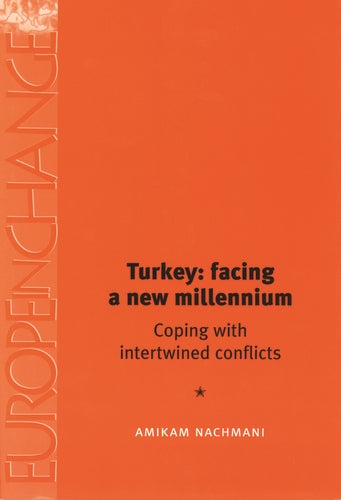Description
Explore the transformative journey of Turkey as it faces a new millennium with our essential book, "Turkey: Facing a New Millennium." This insightful paperback, published by Manchester University Press in 2009, is a vital academic resource for those interested in Turkish politics, foreign policy, and European Union integration. Delve into Turkey's significant role during the Gulf War in 1991, which marked a crucial turning point for the country’s acceptance into the EU. The first section meticulously analyzes Turkey’s foreign policy during the turbulent 1990s, highlighting how the nation navigated the dramatic shifts of post-Cold War geopolitics. Discover how Turkey adeptly managed the challenges posed by the dissolution of the Soviet Union and prevented involvement in the ethnic conflicts in Central Asia, the Balkans, and the Middle East. This book also discusses Turkey's strategic importance and the effects of its evolving relationship with Europe and the West.
The second part shifts focus to internal politics, detailing the government's response to the Kurdish revolt and the economic advancements achieved during this period. Nachmani's expert analysis offers profound insights into the strengthening of civil society and lays out the future prospects for Turkey as it seeks to integrate further with Europe in the twenty-first century. This comprehensive examination is essential reading for students of Turkish and European politics, ensuring readers understand the complexities of Turkey's political landscape. Enhance your library with this pivotal text today!
The second part shifts focus to internal politics, detailing the government's response to the Kurdish revolt and the economic advancements achieved during this period. Nachmani's expert analysis offers profound insights into the strengthening of civil society and lays out the future prospects for Turkey as it seeks to integrate further with Europe in the twenty-first century. This comprehensive examination is essential reading for students of Turkish and European politics, ensuring readers understand the complexities of Turkey's political landscape. Enhance your library with this pivotal text today!

